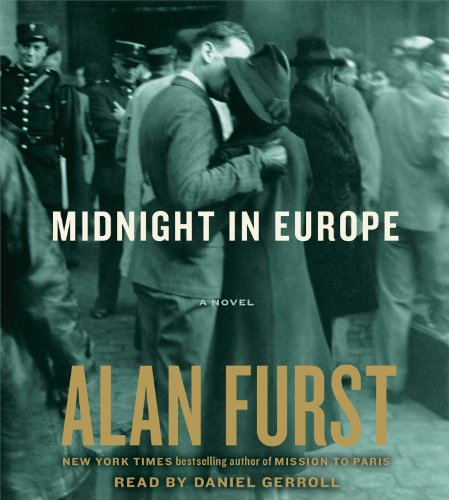
The latest novel from New York Times bestselling author and the “modern-day master of the genre” (Newsday), Alan Furst.
From the New York Times bestselling author and the acclaimed “grandmaster” of espionage (Boston Globe) comes the taut, suspenseful story, set in Paris and Spain, of a man caught in the turmoil of the Spanish Civil War, and an operation that—with the help of FDR’s secret operatives—will determine Europe’s fate in the coming world war.
New York City, autumn 1938. Gregorio D’Alba, a minor noble descended from the Spanish Bourbons, is awaiting passage on a freighter to Paris after a failed attempt to convince American oil companies to support the Republican side in the Spanish Civil War. In Paris, surrounded by shifting political allegiances and prying spy services, D’Alba does whatever he can to support the Spanish Republic–smuggling, gathering intelligence, running arms. But the stakes quickly escalate when D’Alba, along with the British and the Americans, undertakes a mission to infiltrate the highest levels of the Spanish government, and to determine the alliances of his country and forever alter the course of the coming world war.
With his signature gripping, heart-pounding story, Alan Furst’s new novel confirms his status as “the most talented espionage novelist of our generation” (Vince Flynn).

As time runs short for the Spanish Republicans, a Paris lawyer schemes to find them arms Alan Furst gives us another Casablanca-style yarn set in prewar Europe. This one concerns the Spanish Civil War, which he hasn’t dealt with much since his first couple of books. Only a bit takes place in Spain; it’s mostly about Spanish émigré Cristian Ferrar, a Paris lawyer who gets involved helping the beleaguered Republican forces procure arms through their Paris embassy.It’s not easy, as hardly anyone will sell them any, requiring all sorts of chicanery, and…
Familiar territory Having been a devoted reader of Alan Furst’s often dark and exciting novels about the years leading up to and into WWII, with spies and passionate efforts to find ways to prevent the Fascist/Nazi takeover of Europe or to oppose the effort during the war, I approached this new novel with eager anticipation. While I was not deeply disappointed, I have to admit that this one seems to offer evidence of authorial fatigue, of a somewhat casual, if not careless, approach to building the fictional…
Familiar territory for Furst By now, readers of Alan Furst know what to expect of his work and he follows the familiar script in this latest novel without much variation. That does not mean that this book was not enjoyable. After all, why mess with success? However, the danger remains that an author at some point becomes formulaic and avoids taking risks – and sooner or later this may happen to Furst.So we once again find ourselves in the years leading up to World War Two in Paris. Our hero follows the usual…